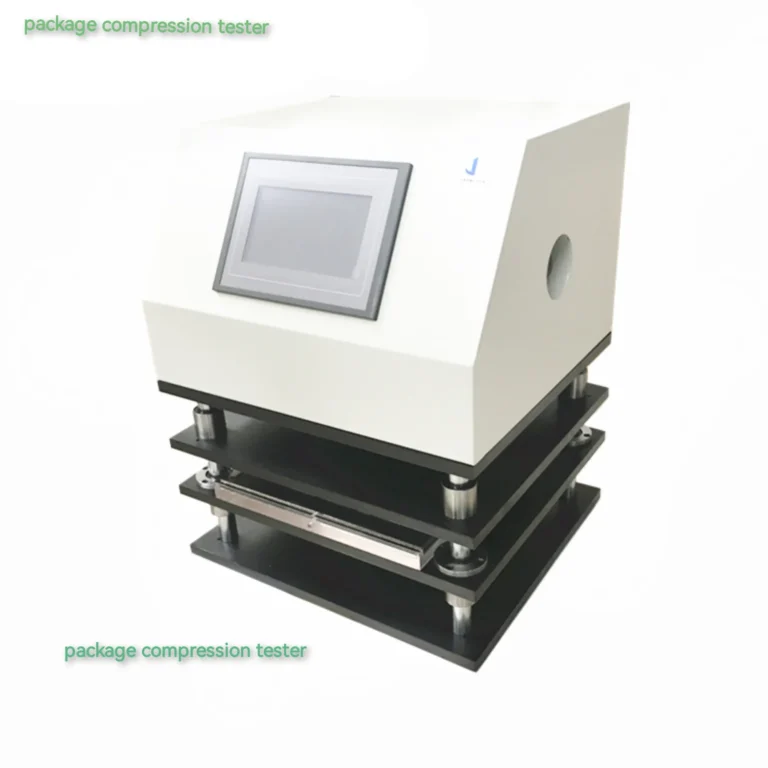Plastic Infusion Bottle Compression Test
In the pharmaceutical and medical packaging industry, ensuring that packaging materials withstand external forces is crucial. The plastic infusion bottle compression test is an essential method to evaluate the strength and durability of plastic bottles used for infusion therapies. This article explores the significance of this test, highlighting related concepts like plastic film packaging compression performance, packaging integrity testing, and composite film bag finished product packaging compression test. We also introduce advanced testing solutions such as the Cell Instruments PCT-01 package compression tester to help quality professionals achieve reliable results.
Why the Plastic Infusion Bottle Compression Test Matters
Plastic infusion bottles must maintain their structural integrity throughout production, storage, and transportation to avoid leaks or contamination. The plastic infusion bottle compression test simulates the compressive forces these bottles encounter, helping manufacturers verify whether packaging can endure stacking pressures and mechanical stress.
By understanding compression resistance, quality control teams prevent packaging failures that can compromise patient safety and product efficacy.
Plastic Film Packaging Compression Performance and Packaging Integrity Testing
Packaging performance depends not only on the bottle itself but also on the associated plastic film packaging compression performance. Films protect bottles and their contents from contamination and damage. Compression testing evaluates the film’s ability to resist deformation and rupture under pressure.
Packaging integrity testing encompasses a broader evaluation of the package’s ability to maintain protection and containment. This includes leak resistance, barrier properties, and mechanical strength — all critical for pharmaceutical applications.
Composite Film Bag Finished Product Packaging Compression Test
The composite film bag finished product packaging compression test targets multi-layered film bags widely used in pharmaceuticals. These bags combine flexibility and barrier properties but must also demonstrate sufficient compression resistance.
Testing these bags involves placing samples between upper and lower pressure plates and applying controlled compressive force. Monitoring the force response reveals the material’s bursting performance and pressure resistance capabilities.
Advanced Testing with Cell Instruments PIT-01P
The Cell Instruments PCT-01 Package Compression Tester offers a versatile solution for these testing needs. Its features include:

HMI touch screen for easy parameter setting and test operation
Industrial-grade PLC control system for reliability
Two test modes: maximum bursting force and constant pressure resistance
Automatic constant pressure compensation and data statistics
Liquid collection device to prevent contamination during sample rupture
Customizable test sizes for non-standard samples
Optional RS232 port and professional software for data management
With these capabilities, the PIT-01P ensures precise, reproducible measurements essential for regulatory compliance and product optimization.
Best Practices for Conducting Compression Tests
Prepare samples to mirror actual production conditions and environment.
Follow relevant standards and protocols to maintain test consistency.
Calibrate testing instruments regularly to ensure accuracy.
Analyze force curves and data to identify packaging weaknesses.
Document results clearly to support quality assurance and regulatory audits.
Why Choose Cell Instruments for Compression Testing?
Cell Instruments offers more than just testing machines — we provide complete technical support, customized solutions, and expert consulting for packaging evaluation. The PCT-01 tester is backed by a team with deep industry knowledge, ensuring our customers get reliable results tailored to their packaging materials, including plastic infusion bottles, plastic films, and composite film bags. With Cell Instruments, quality assurance becomes more efficient, traceable, and compliant with evolving industry standards.
Conclusion
The plastic infusion bottle compression test plays a vital role in verifying the mechanical strength and packaging integrity of medical containers. Alongside testing of plastic films and composite film bags, these methods guarantee product safety and durability under real-world conditions.
Utilizing advanced instruments like the Cell Instruments PCT-01 package compression tester enhances testing accuracy and efficiency. For manufacturers and quality control teams, integrating these tests into routine protocols ensures compliance and protects end-users.